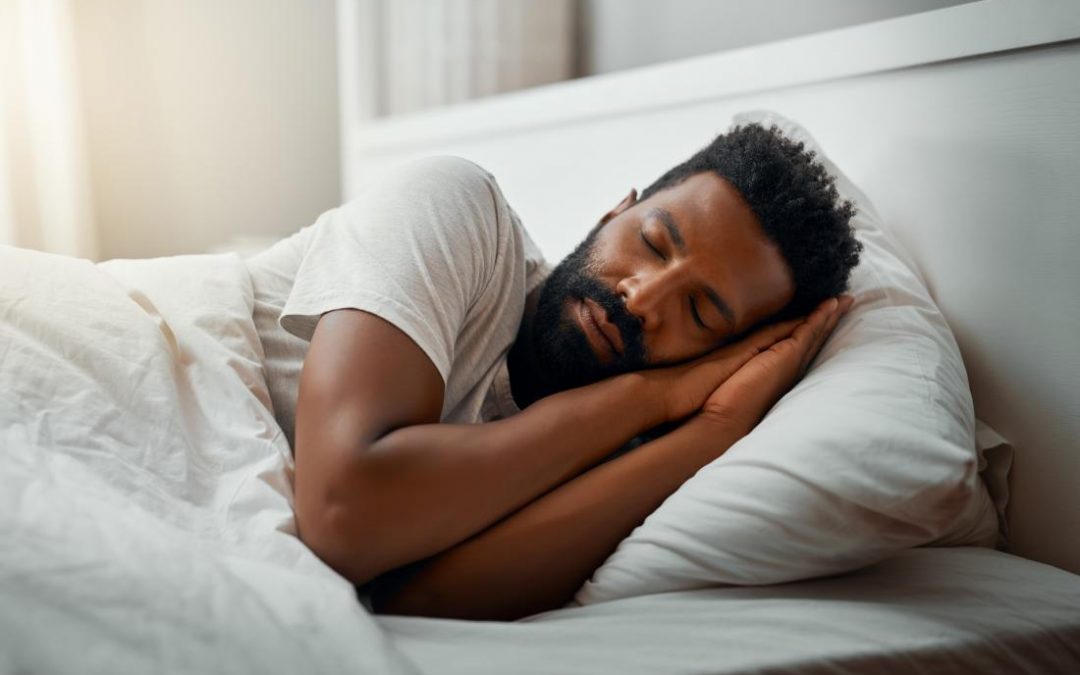The main cause of Alzheimer’s is lifestyle, not heredity, and according to Dr. Ayesha Sherzai, a scientist and researcher who specializes in preventive neurology, every small thing you do on a daily basis makes a big difference when it comes to brain health.
So, in this series I am outlining some “small things” you can do to prevent Alzheimer’s. I have already covered lifelong learning and loneliness in the last two articles and now I want to mention the importance of sleep. Neurologist David Perlmutter claims that sleep deprivation is directly linked to an increased risk of developing Alzheimer’s disease. And the Center for Disease Control found that one-third of Americans report not getting enough sleep.
As David Perlmutter mentions in the Alzheimer’s: the Science of Prevention program, it is during sleep that we remove any amyloid and tau from our brains, two proteins that are associated with Alzheimer’s disease. He also mentions that sleep deprivation increases insulin resistance, slows metabolism, and increases inflammation.
Sleep deprivation does not only increase the risk of Alzheimer’s, but it has also been linked to confusion, memory loss, a weakened immune system, obesity, cardiovascular disease, depression, and our ability to think clearly. Mark Hyman, Director, Cleveland Clinic Center for Functional Medicine, relates a study of sharpshooters from the military, snipers who were 99.9 percent accurate with 8 hours of sleep. With 7 hours they were about 90%, with 6 hours about 60%, and with 5 hours or less, missed most of the time.
Chiara Cirelli, a neuroscientist, and author of a research paper on the topic of sleep, suggests that sleep helps cells regenerate and repair themselves by helping the body produce new myelin after it has deteriorated. Myelin is the brain`s insulating material. This allows electrical impulses to travel quickly and efficiently to other neurons. Myelin deficiency is at the root of multiple sclerosis disease, and can contribute to symptoms such as fatigue, vision and hearing impairment and a loss of coordination.
Sleep deprivation impairs functioning of the brain-based executive skills located in the frontal lobes of the brain. This area is one of the first areas to be affected by Alzheimer’s disease. One sleep scientist claims that sleep is one of the most important predictors of how long you will live.
Below is an indication of how much time sleep experts believe we need at various stages in our life, as reported in my e-Book, Sleep: A Time Management Strategy. Of course, scientists disagree slightly, but it gives a good idea of our sleep requirements. And it is obvious that many adults and teenagers do not get enough sleep.
Infants: 14 to 15 hours
Children 5 to 12 yrs. Old, 10 to 11 hours
Teenagers: About 9 hours
Adults: 7 to 9 hours
One study showed that students scoring in the top 10% in grades dropped to the bottom 9% after only seven hours of sleep per night and seven hours 40 minutes on weekends.
Michael Breus, a clinical psychologist, and founder of TheSleepDoctor.com, says the easiest way to determine if you are getting good sleep is how you feel when you wake up. If you are just dragging and cannot wait for your first cup of coffee, you are not getting good quality sleep. Among the things he suggests are the following.
- Have a consistent wake up time, even on weekends.
- Do not have caffeine after 2:00 PM.
- If you are going to have alcohol, you want to give yourself about 3 hours before lights out. That way alcohol has been digested and will not have a major impact on your sleep.
- But do not exercise too close to bedtime because in some ways that can be disruptive if it raises your core body temperature. Stop exercise about 4 hours before bedtime.
- Get sunlight every morning. Within 30 minutes of waking up, walk to the window or go outside to get some direct sunlight. Some light turns off the melatonin faucet in your brain, and that can be helpful.
There are additional suggestions in my e-Book, Sleep: A Time Management Strategy.
You are probably sleep-deprived if you get less than 6 hours sleep a night, and I recommend you aim for seven or more hours a night. It will not only eliminate sleep as a possible contributor to Alzheimer’s but will be a positive contributor to your overall health as well.
Successful People Read. A Lot.
What do Warren Buffett, Mark Zuckerberg, Elon Musk and Oprah Winfrey have in common? They all read - a LOT! If you want to be successful you need to read. We have over 30 short ebooks designed to get you booked up fast!



Recent Comments